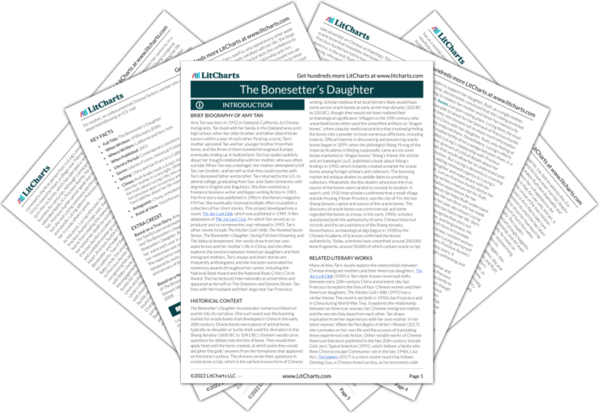LuLing’s suicide attempt teaches Ruth that her words have the power to elicit real change. When Ruth successfully used her voice (through her tea-tray-writing) to convince LuLing to move to San Francisco when she was 11, she realized that having a voice allowed her to exercise control over her life and saw this power as a solely positive thing. Now, she sees how her voice gives her the power to inflict harm, too. At the same time, this scene shows how LuLing’s unresolved guilt over Precious Auntie’s death negatively affects her ability to be a good mother to Ruth. Ruth’s words might be cruel, but many teenagers express an immature (and often untrue) hatred of their parents. For LuLing to respond to Ruth’s diary entry in such an extreme way is equally cruel, since she’s willfully inviting Ruth to experience the same guilt and shame that she herself endured after Precious Auntie’s suicide.
